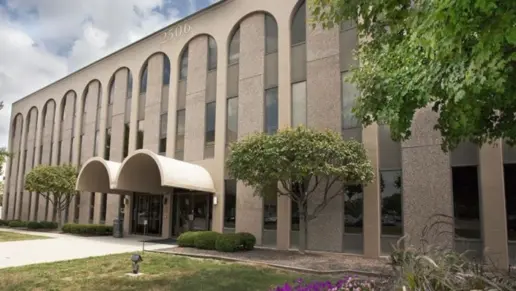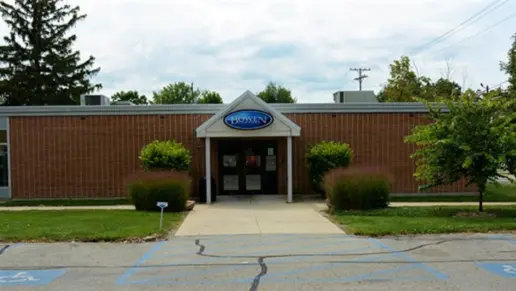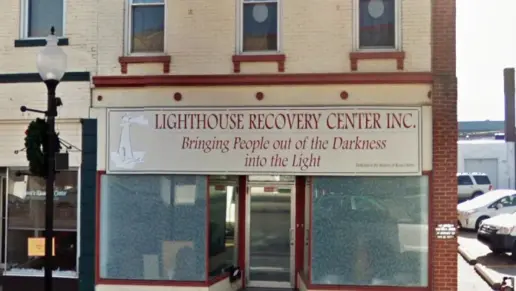About Wooded Glen Recovery Center
Wooded Glen Recovery Center is a residential addiction treatment and recovery center in Henryville, Indiana. They serve adults affected by substance use disorders. They even address dual diagnosis disorders. This is when someone is simultaneously dealing with mental health and substance use disorders. Their treatment options include medically monitored detox and inpatient treatment. Specialized treatment is available for veterans via their Tactical Program. This is provided through a partnership with the Department of Veterans Affairs Community Care Network and PsychArmor.
What I find fascinating about this facility is its calm embrace of nature. The facility is tucked away in serene wooded areas with expansive green fields and a lake. This natural setting fosters relaxation and reflection.
This program is Joint Commission accredited and LegitScript certified. This validates their commitment to quality care delivery.
Their medical detox program takes place in a highly structured and therapeutic inpatient unit. The process involves pre assessment, individualized treatment planning and stabilization with 24/7 monitoring by a trained therapist or physician. The care personnel may administer FDA approved medication to minimize withdrawal symptoms. This ensures your detox is safe and comfortable. Detox may last from 24 hours to several weeks. It all depends on your unique condition. For most people it takes five days.
After detox the focus of your treatment shifts to inpatient rehabilitation. This involves intensive therapy with round the clock support by their team of credentialed recovery professionals. This program combines the 12 Step model with proven therapeutic practices like cognitive behavioral therapy, dialectical behavior therapy and somatic experiencing. This is delivered in group, individual and family formats. The group sessions cut across various recovery aspects such as relapse prevention, life skills and stress management. Emphasis is on addressing the underlying causes of your substance use, developing robust coping strategies and building and strengthening relationships.
You’ll participate in mindfulness groups, yoga and meditation. You may also have access to nature walks, fishing and equine assisted therapy. These holistic approaches heal the body, mind and spirit. Psychiatric services like medication management and evaluations are provided, which are crucial for treating dual diagnosis disorders. You’ll also benefit from their substance use and co-occurring disorders education.
Before discharge you’ll be introduced to their online Trac9 relapse prevention program which you can use for 12 months afterward. You’ll also be invited to join the alumni group to remain part of the recovery community. This makes it easy to access community resources for ongoing recovery support.
Rehab Score
Gallery
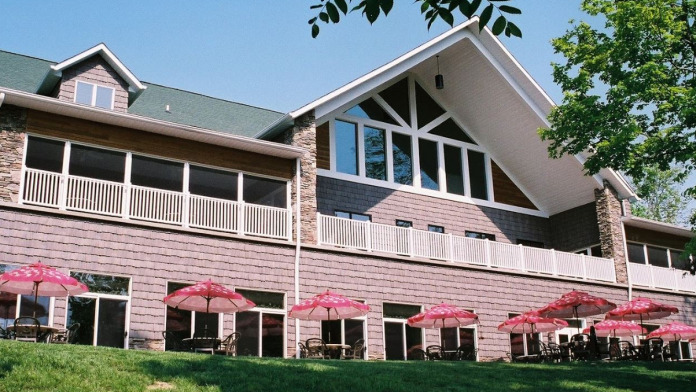

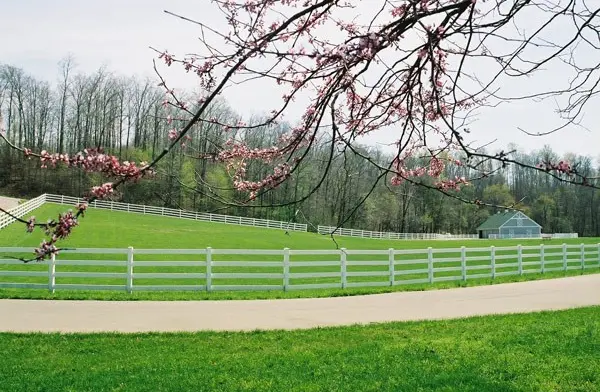
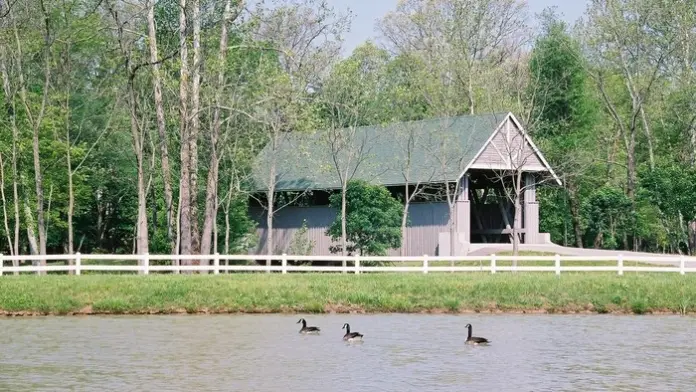
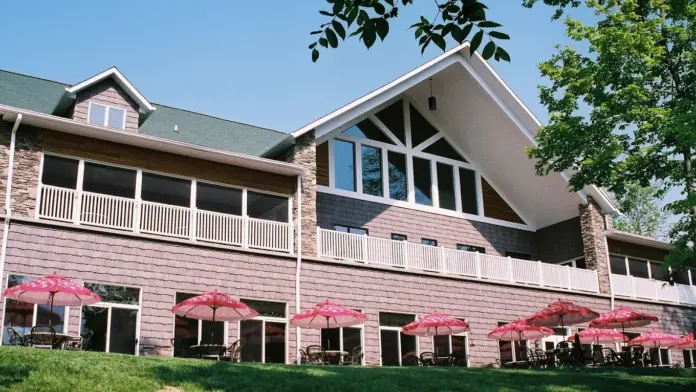
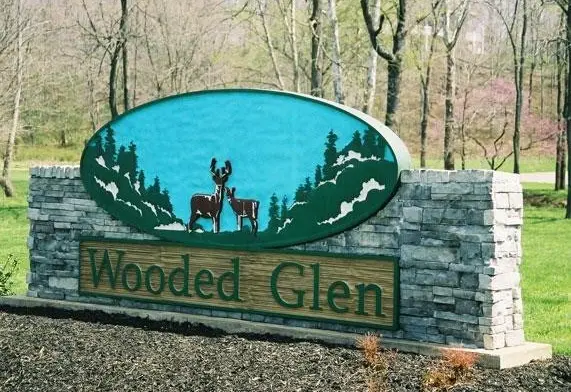
Location
Accepted Insurance
Other Forms of Payment
Private insurance refers to any kind of healthcare coverage that isn't from the state or federal government. This includes individual and family plans offered by an employer or purchased from the Insurance Marketplace. Every plan will have different requirements and out of pocket costs so be sure to get the full details before you start treatment.
Self-pay involves paying for treatment out of your own pocket. You can use savings or credit, get a personal loan, or receive help from family and friends to fund your treatment. If you don't have insurance or your insurance plan doesn't cover a specific program, self-pay can help ensure you still get the care you need.
Financial aid can take many forms. Centers may have grants or scholarships available to clients who meet eligibility requirements. Programs that receive SAMHSA grants may have financial aid available for those who need treatment as well. Grants and scholarships can help you pai for treatment without having to repay.
Addiction Treatments
Levels of Care
Treatments
The goal of treatment for alcoholism is abstinence. Those with poor social support, poor motivation, or psychiatric disorders tend to relapse within a few years of treatment. For these people, success is measured by longer periods of abstinence, reduced use of alcohol, better health, and improved social functioning. Recovery and Maintenance are usually based on 12 step programs and AA meetings.
For long-term recovery from drug addiction, drug rehab in Indiana is often key. This treatment gives individuals who are struggling with a substance use disorder the tools to manage their disorder and achieve long-term sobriety.
Many of those suffering from addiction also suffer from mental or emotional illnesses like schizophrenia, bipolar disorder, depression, or anxiety disorders. Rehab and other substance abuse facilities treating those with a dual diagnosis or co-occurring disorder administer psychiatric treatment to address the person's mental health issue in addition to drug and alcohol rehabilitation.
Mental health rehabs focus on helping individuals recover from mental illnesses like bipolar disorder, clinical depression, anxiety disorders, schizophrenia, and more. Mental health professionals at these facilities are trained to understand and treat mental health issues, both in individual and group settings.
Substance rehabs focus on helping individuals recover from substance abuse, including alcohol and drug addiction (both illegal and prescription drugs). They often include the opportunity to engage in both individual as well as group therapy.
Programs



Clinical Services
Research clearly demonstrates that recovery is far more successful and sustainable when loved ones like family members participate in rehab and substance abuse treatment. Genetic factors may be at play when it comes to drug and alcohol addiction, as well as mental health issues. Family dynamics often play a critical role in addiction triggers, and if properly educated, family members can be a strong source of support when it comes to rehabilitation.
Group therapy is any therapeutic work that happens in a group (not one-on-one). There are a number of different group therapy modalities, including support groups, experiential therapy, psycho-education, and more. Group therapy involves treatment as well as processing interaction between group members.
In individual therapy, a patient meets one-on-one with a trained psychologist or counselor. Therapy is a pivotal part of effective substance abuse treatment, as it often covers root causes of addiction, including challenges faced by the patient in their social, family, and work/school life.
Life skills trainings involve all the skills a person must have in order to function successfully in the world. These include time management, career guidance, money management, and effective communication. Truly successful addiction recovery is based on the ability to not only live substance-free, but to thrive. Life skills teaches the practical necessities of functioning in society, which sets clients up for success in life, and therefore sobriety.
Amenities
-
Private Setting
Staff & Accreditations
Staff

Chief Executive Officer

Director of Clinical Services

Director of Nursing

Director of Admissions

Director of Human Resources
Accreditations

The Joint Commission, formerly known as JCAHO, is a nonprofit organization that accredits rehab organizations and programs. Founded in 1951, the Joint Commision's mission is to improve the quality of patient care and demonstrating the quality of patient care.
Joint Commission Accreditation: Yes

LegitScript has reviewed Wooded Glen Recovery Center as part of their certification program, and has determined that it meets the LegitScript standards for legality, safety and transparency.
LegitScript verified in August 2020
Contact Information
2602 Hebron Church Rd.
Henryville, IN 47126






